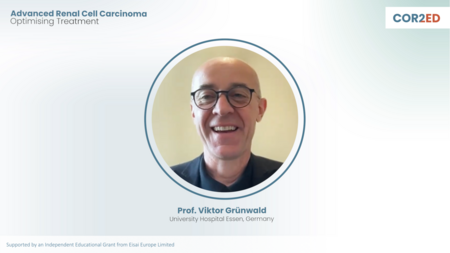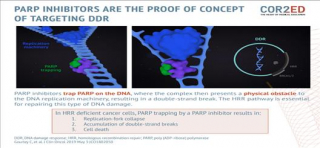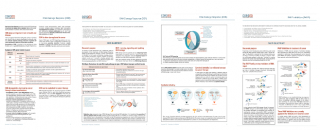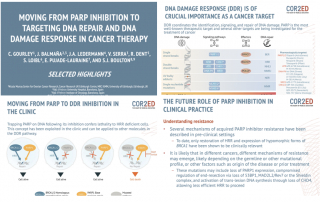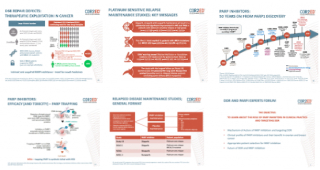
PARP inhibition and DNA Damage Response (DDR)
PARP inhibition and DNA Damage Response (DDR)
This comprehensive resource looks at PARP inhibition and DDR as therapeutic targets across multiple tumour types
This comprehensive resource looks at PARP inhibition and DDR as therapeutic targets across multiple tumour types
Prof. Simon Boulton, Dr. Violeta Serra, Dr. Judith Balmaña, Prof. Charlie Gourley
A comprehensive resource available via ESMO OncologyPRO

Prof. Simon Boulton
Senior Scientist
Francis Crick Institute
United Kingdom (UK)

Dr. Violeta Serra
Senior Scientist
Vall d'Hebron Institute of Oncology
Spain

Dr. Judith Balmaña
Medical Oncologist
Vall d'Hebron University Hospital
Spain

Prof. Charlie Gourley
Medical Oncologist
CRUK Edinburgh Centre, Nicola Murray Centre for Ovarian Cancer Re...
United Kingdom (UK)



Prof. Simon Boulton
Senior Scientist
Francis Crick Institute
United Kingdom (UK)
Prof. Simon Boulton has received financial support/sponsorship for research support, consultation, or speaker fees from the following companies:

Dr. Violeta Serra
Senior Scientist
Vall d'Hebron Institute of Oncology
Spain
Dr. Violeta Serra has received financial support/sponsorship for research support, consultation, or speaker fees from the following companies:

Dr. Judith Balmaña
Medical Oncologist
Vall d'Hebron University Hospital
Spain
Dr. Judith Balmaña has received financial support/sponsorship for research support, consultation, or speaker fees from the following companies:

Prof. Charlie Gourley
Medical Oncologist
CRUK Edinburgh Centre, Nicola Murray Centre for Ovarian Cancer Research
United Kingdom (UK)
Prof. Charlie Gourley has received financial support/sponsorship for research support, consultation, or speaker fees from the following companies:
|
30 min
|
Sep 2019
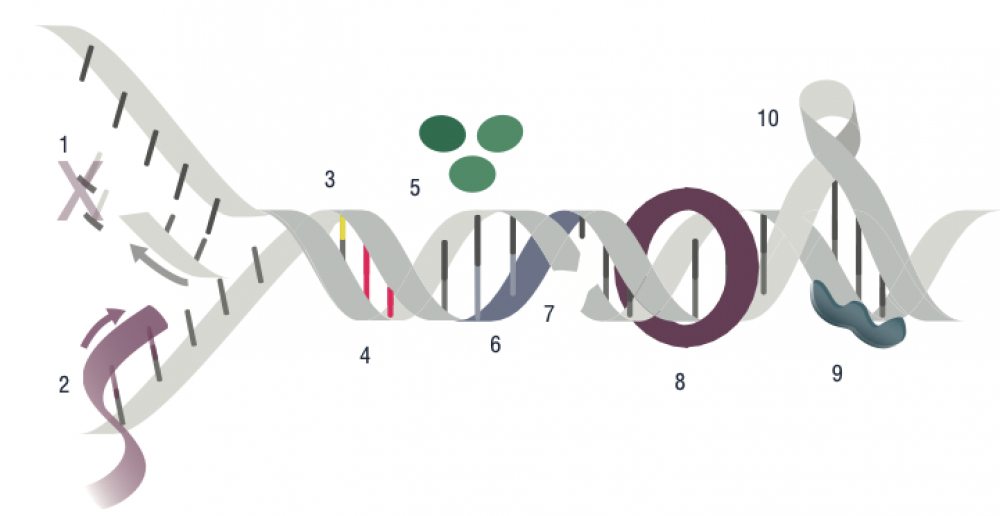
This programme was made for you: your opinion matters
Share your feedback in just 4 clicks and help us to continue to create the content you need.
I agree that this educational programme:
Was valuable to me:
1/4
Has improved my knowledge of this topic:
2/4
Is likely to change my clinical practice:
3/4
Was balanced and unbiased:
4/4
This programme was made for you: your opinion matters
Share your feedback in just 4 clicks and help us to continue to create the content you need.
I agree that this educational programme:
Was valuable to me:
1/4
Has improved my knowledge of this topic:
2/4
Is likely to change my clinical practice:
3/4
Was balanced and unbiased:
4/4
A comprehensive resource developed by experts Prof. Simon Boulton, Prof. Charlie Gourley, Dr. Judith Balmaña and Dr. Violeta Serra, available via ESMO OncologyPRO portal, covering the following areas in detail:
-
Mechanism of Action (MoA) targeting DDR
-
MoA of PARP inhibitors (being the proof of concept for targeting DDR)
-
Clinical efficacy and safety/tolerability profile of PARP inhibitors and their benefit in various tumour types, now and in the future
-
Patient selection for PARP inhibition: diagnostics involved in DDR
-
Potential combination strategies with PARP inhibitors
-
Potential future applications for DDR
The information is primarily directed at healthcare professionals and contains information regarding the rationale for targeting DDR, including PARP inhibition as the proof of concept, the current role of PARP inhibition in clinical practice, and the potential future application of targeting DDR in clinical practice.
However, there is also a helpful section for patients and caregivers on the two novel types of targeted cancer drugs known as DDR (DNA damage response)-targeting agents and PARP (poly-ADP ribose polymerase) inhibitors with information on how these drugs work and how patients can work with their healthcare professional to manage any changes that may occur during treatment.
COR2ED have donated this content to ESMO to ensure that this comprehensive guide reflects today's best clinical practice in PARP inhibition and DNA Damage Response.






